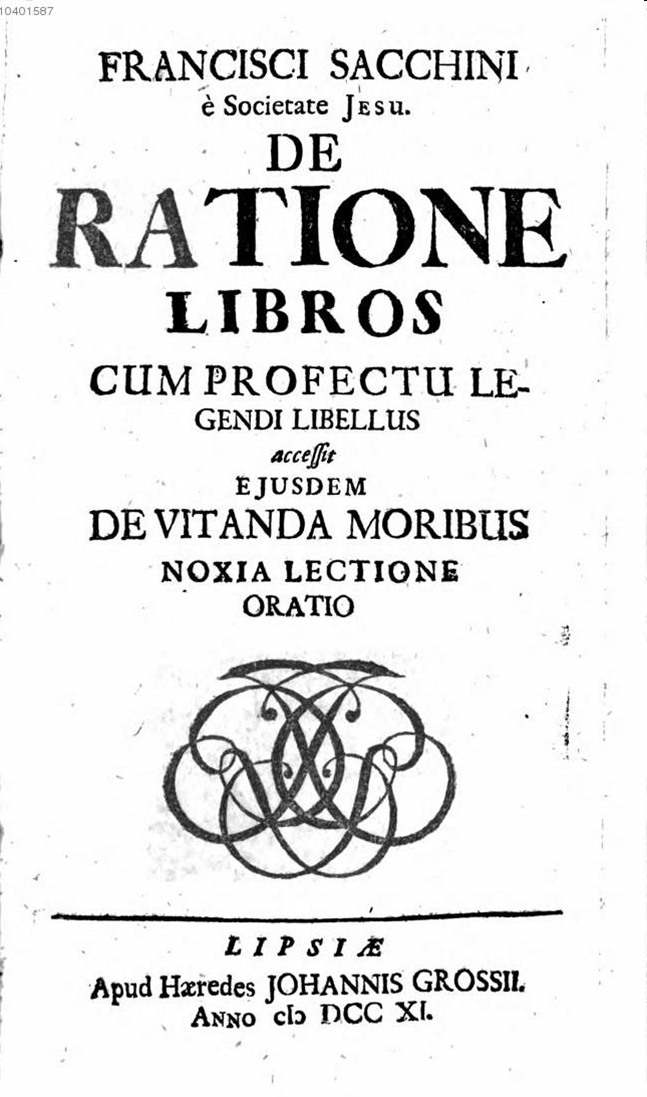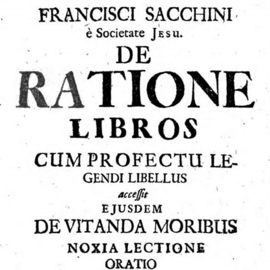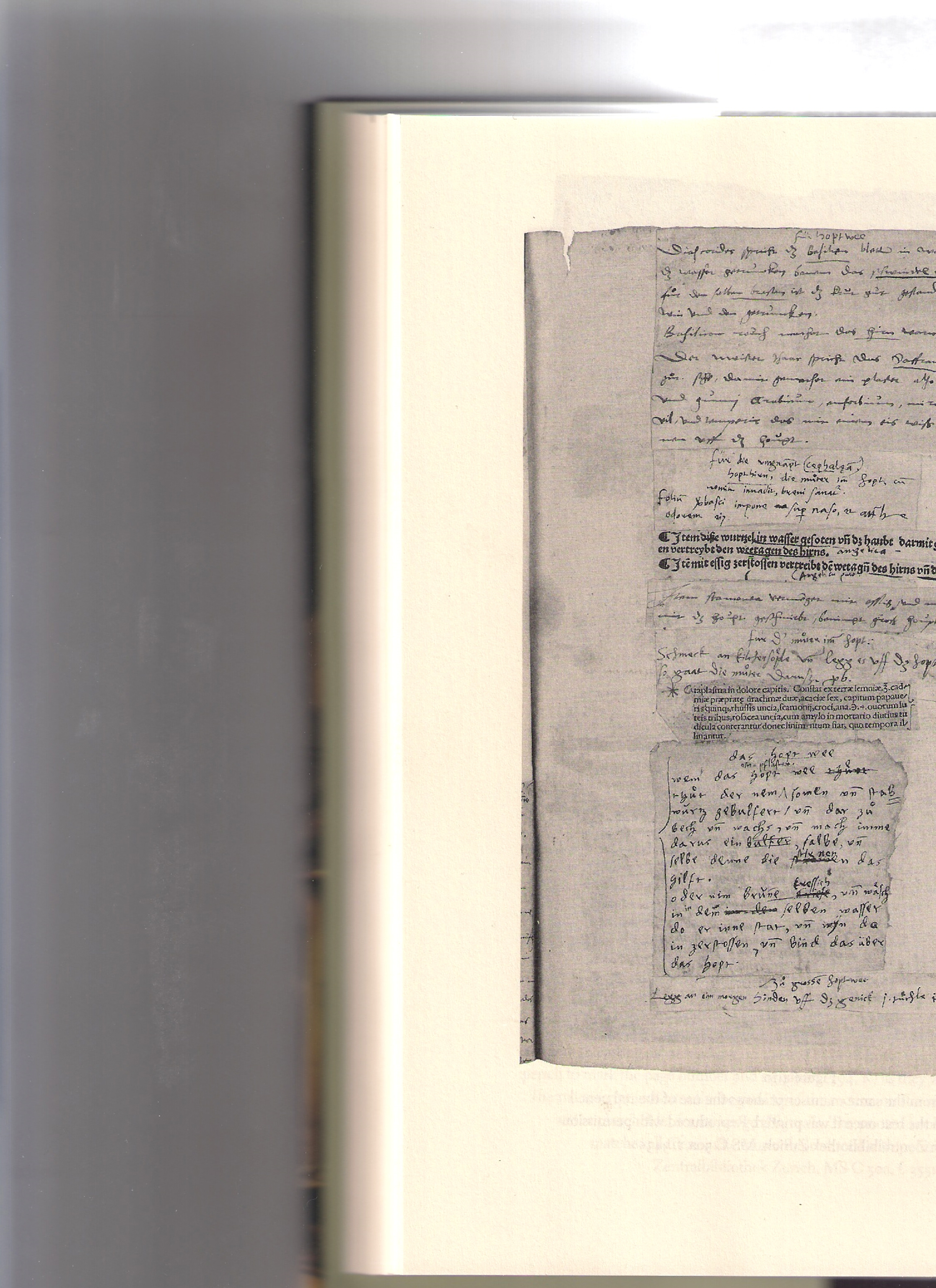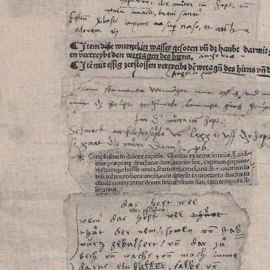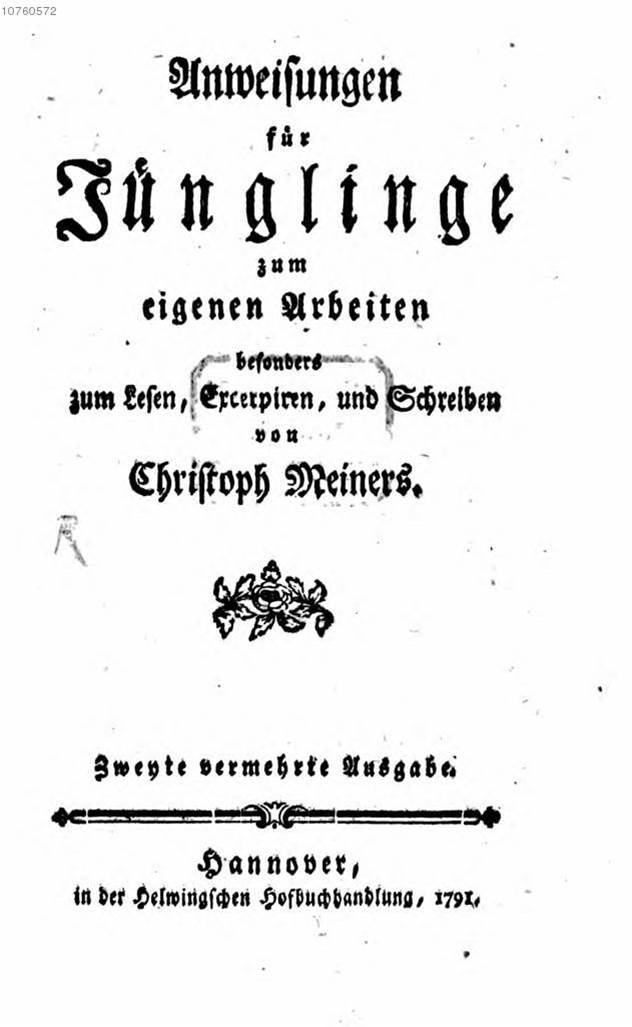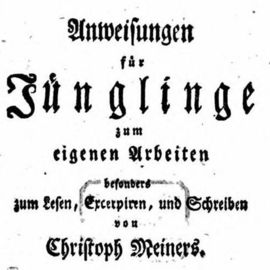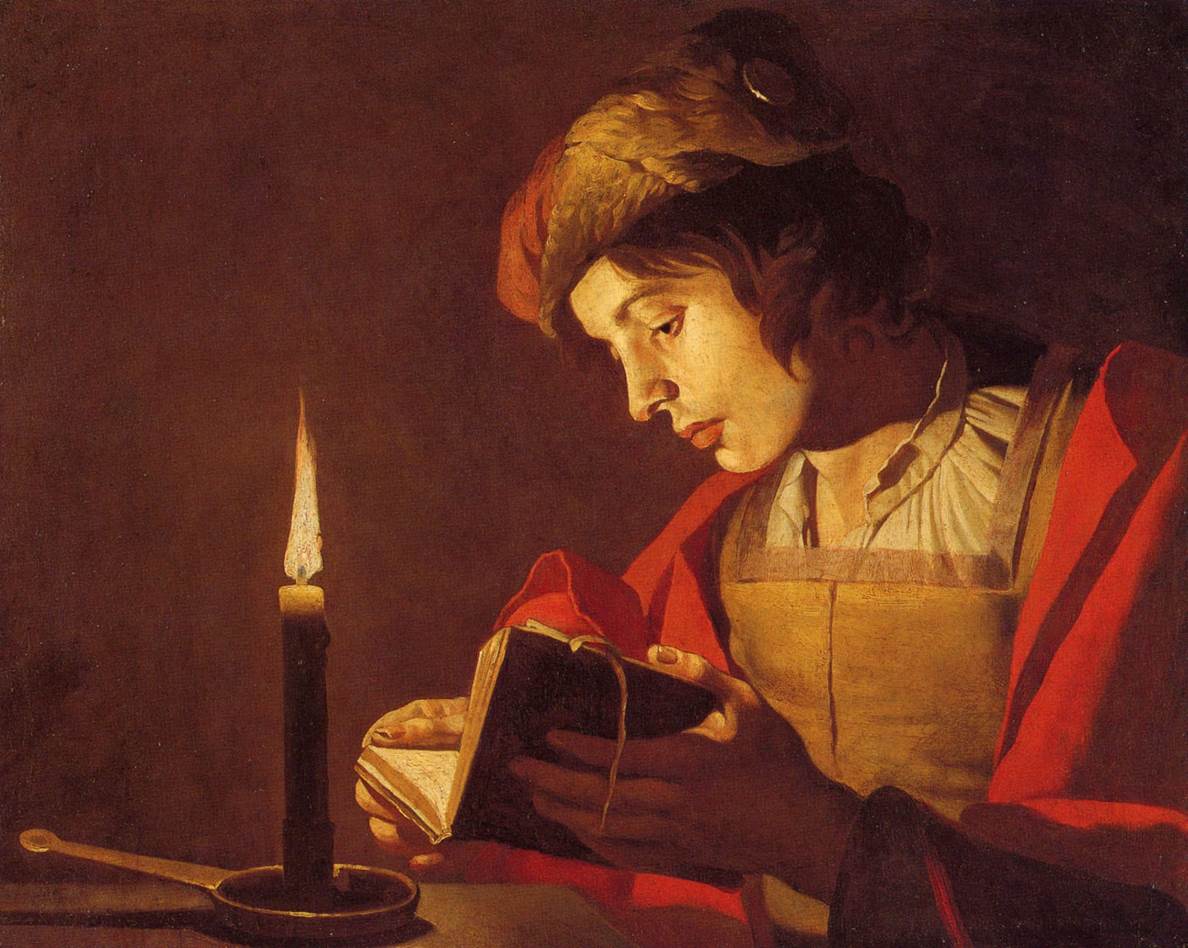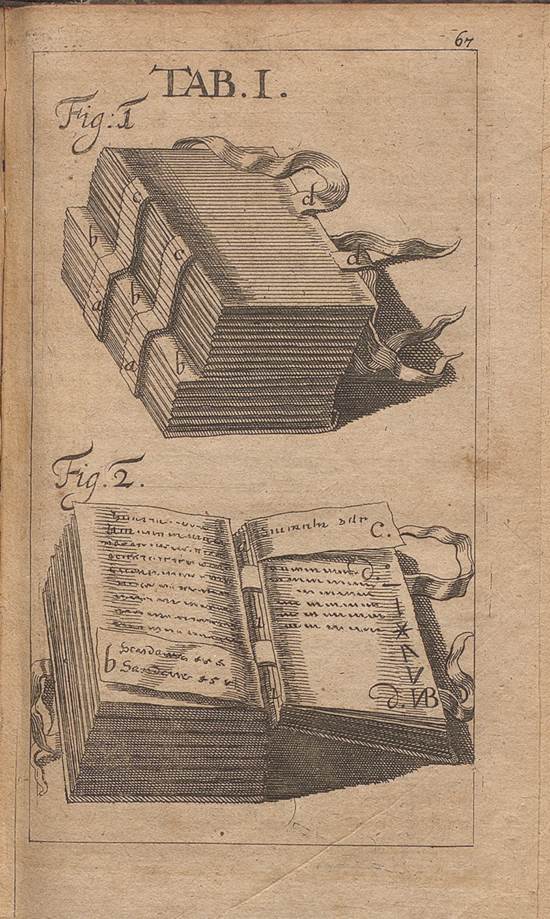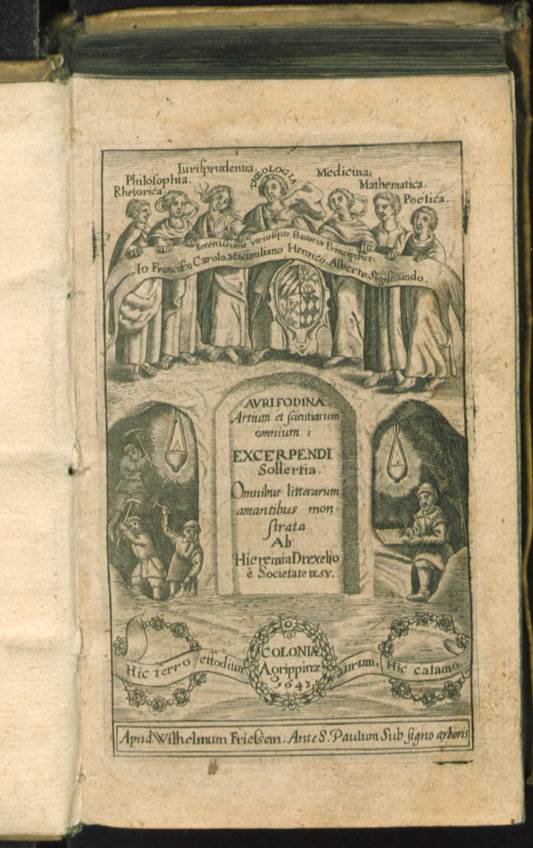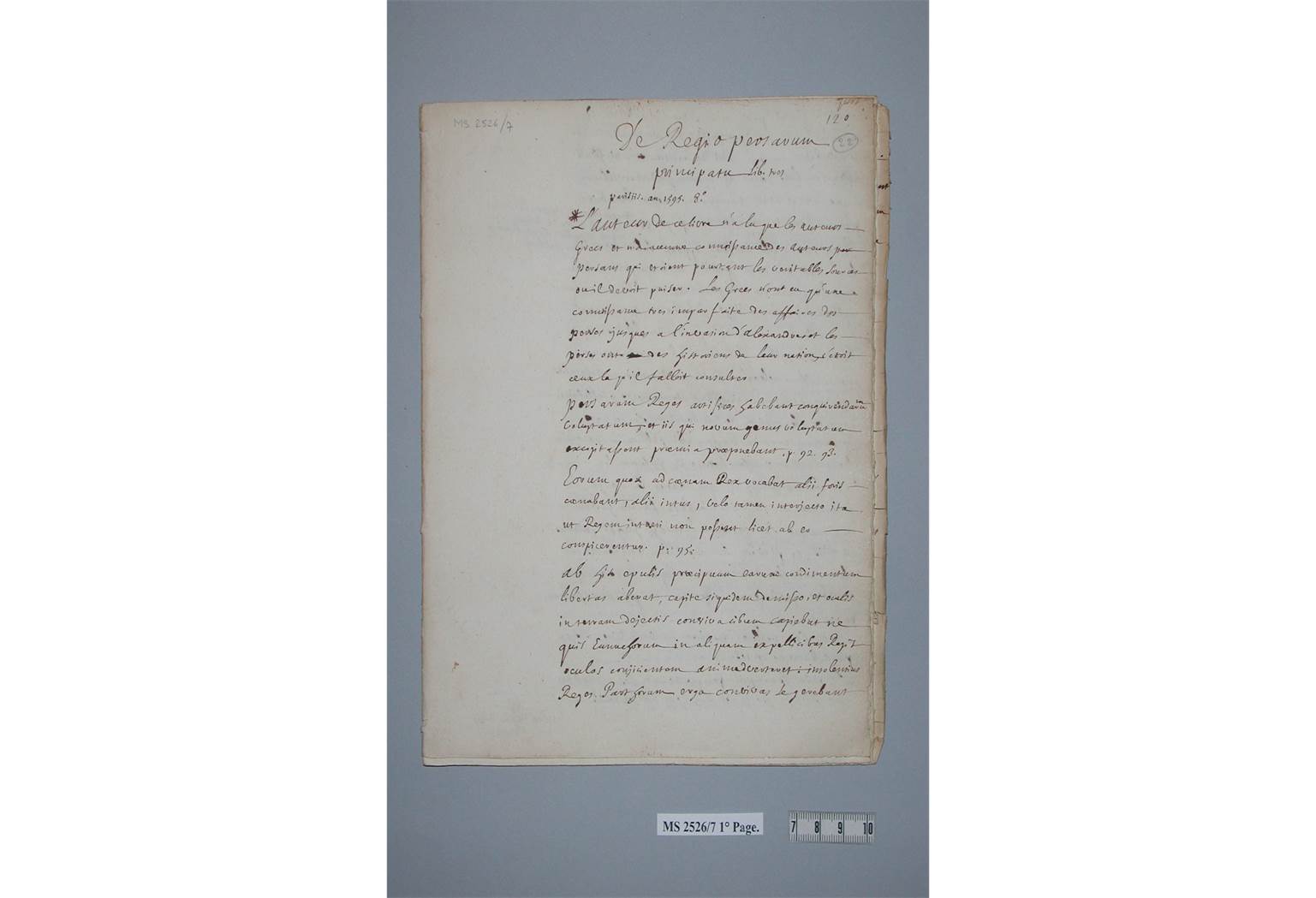Excerpting, Citing, Plagiarizing. Written Culture, Academic Practices and Authorship (16th–21st century)
Project manager: Prof. Dr. Elisabeth Décultot
Project associates: Prof. Dr. Helmut Zedelmaier, Christian Kuhlmann
Duration of project: 01.11.2015 - 31.01.2020
This project investigates transformations in reading and writing with regard to the practices of excerpting, citing and plagiarizing from the early modern period up to the present day, across all of Europe. The C18th deserves particular attention here as a transitionary period and link between the humanistic tradition and the present day.
Project Description
Reading as activity
Reading, excerpting and connected practices such as citing and plagiarising are fundamental activities within written knowledge production and circulation. They are practiced across cultures, eras and disciplines. Their different forms and practices were for a long time overshadowed by historical and philological interests. With digitisation - which has connected collecting, saving and circulating information to new technical possibilities - it has recently become of greater interest to investigate intellectual and literary production with regard to these changing practices and technologies.
From excerpting to writing
The point of departure for this project's investigations is the practice of excerpting. Althought the history of reading is an important field within humanities research, there has still been little investigation into the art of the "excerpt" or "extract" (Latin: excerptum; French: extrait; Italian: estratto) and the connected practice of collecting reading records. Since the Renaissance, European scholars were required to keep excerpt books - collections of reading notes. These excerpt books - which were available at any time, and which could be enriched with new information with every reading and could occasionally reach the size of handwritten libraries - served, on the one hand, as a storage space for selected extracts, citations, tropes and ideas. On the other hand, they were used as quarries, from which materials for the production of the writer's own works could be extracted.
Between the reading store and the writing factory
Such excerpt books are extraordinarily valuable sources for the history of reading and writing, and hence also that of citation, adaptation and plagiarism. They provide important information about at least two central aspects of the production of texts. One the one hand, the reading habits of those making the excerpts are documented: excerpt books demonstrate familiarity with this or that author, a preference for this or that discipline. However, their significance is not limited to providing a register of works read or lists of sources. Excerpt books are also the seeds of writers' own works. They offer an insight into a writer's workshop. We can see from them how a writer takes up and transforms in their own work something they have read in another's.
Questions
The project primarily investigates four aspects of practice of excerpting:
1. Firstly, light should be thrown on the historical context and tradition in which the reading and writing method of excerpting is embedded. This will involve not only an analysis of the early modern context in which the widespread reading practice of excerpting developed, but also the continuing development of its forms up to the C20th and beyond. A central role was played in connection with this by the Enlightenment, a period in which, on the one hand, the ars excerpendi was sharply criticized as a simple exercise in copying, but on the other, intensive use was made of traditional (and also new) forms of knowledge acquisition.
2. Beyond the diachronic dimension, comparisons between different European regions and language areas will be made in order to develop new approaches to a more differentiated cultural history of reading, writing, and text and knowledge circulation in Europe.
3. The next step will address the effect of excerpting on writing. In other words, does this form of reading bring a particular form of writing with it? If so, which?
4. Finally, how the reading practice of excerpting relates to central concepts of our modern understanding of literature (author, original and originality, imitation, copy, invention, plagiarism) will be investigated, along with why excerpts and the practice of excerpting are still not given the attention they deserve today.
Publications
- Elisabeth Décultot, Fabian Krämer and Helmut Zedelmaier (ed.): Towards a History of Excerpting in Modernity (= Special Issue: Berichte zur Wissenschaftsgeschichte / History of Science and Humanities 43/2, 2020, pp. 163–306). https://onlinelibrary.wiley.com/toc/15222365/2020/43/2
- Mike Rottmann: Verstehendes Entziffern eines ‹historisierten› Papierarbeiters. Methodische und responsive Reflexionen zur Erschließung, Edition und Kommentierung von Friedrich Nietzsches nachgelassener Bibliothek. In: A. Jaspers, A./Kilcher, A. B. (ed.): Randkulturen: Lese- und Gebrauchsspuren in Autorenbibliotheken des 19. und 20. Jahrhunderts. Göttingen 2020, pp. 110–137.
- Helmut Zedelmaier: Zacharias Konrad von Uffenbach. Fünf Schlaglichter auf einen gelehrten Sammler. In: Friedrich, M./Müller, M. E. (ed.): Zacharias Konrad von Uffenbach. Büchersammler und Polyhistor in der Gelehrtenkultur um 1700. Berlin, Boston (2020) 2021, pp. 11–68.
- Elisabeth Décultot: Das VD 18 und die Arbeit am Text. Ein Erfahrungsbericht. In: Brigitte Klosterberg with the assistance of Anne Lulu Fetscher (ed.): Einladung in das 18. Jahrhundert. Bücherwelten digital erleben (Accompanying brochure to the exhibition of the same name, Halle, Franckesche Stiftungen, 18.11.2021-13.02.2022) Calbe 2021, pp. 34–37.
Further reading
- Blair, Ann: Reading Strategies for Coping with Information Overload ca. 1550–1700. In: Journal of the History of Ideas 64 (2003), pp. 11-28.
- Blair, Ann: Note-Taking as an Art of Transmission. In: Critical Inquiry 31 (2004), pp. 85-107.
- Blair, Ann: Too Much to Know. Managing Scholarly Information before the Modern Age. New Haven und London 2010.
- Bollbuck, Harald: Wahrheitszeugnis, Gottes Auftrag und Zeitkritik: Die Kirchengeschichte der Magdeburger Zenturien und ihre Arbeitstechniken. Wiesbaden 2014.
- Brendecke, Arndt: ‹Durchschossene Exemplare›. Über eine Schnittstelle zwischen Handschrift und Druck. In: Archiv für Geschichte des Buchwesens 59 (2005), pp. 50-64.
- Burke, Peter: Papier und Marktgeschrei. Die Geburt der Wissensgesellschaft. Berlin 2001 (Originaltitel: A Social History of Knowledge. Cambridge 1997).
- Cavallo, Guglielmo/Chartier, Roger (ed.): Die Welt des Lesens. Von der Schriftrolle zum Bildschirm. Frankfurt a.M. 1999 (originally published in Italian as: Storia della lettura nel mondo occidentale. Roma/Bari 1995).
- Cevolini, Alberto: De Arte Excerpendi. Imparare a dimenticare nella modernità. Firenze 2006.
- Darnton, Robert.: First Steps Toward a History of Reading. In: The Kiss of Lamourette. Reflections in Cultural History. New York 1990, pp. 154-187.
- Daston, Lorraine: Warum sind Tatsachen kurz? In: Büscher, B. et al. (ed.): Cut and paste um 1900. Der Zeitungsausschnitt in den Wissenschaften (= Kaleidoskopien. Zeitschrift für Mediengeschichte und Theorie 4, special issue). Berlin 2002, pp. 132-144.
- Daston, Lorraine.: Taking Note(s). In: Isis 95 (2004), pp. 443-448.
- Décultot, Elisabeth: Johann Joachim Winckelmann. Enquête sur la genèse de l’histoire de l’art. Paris 2000 (dt. Übers.: Untersuchungen zu Winckelmanns Exzerptheften. Ein Beitrag zur Genealogie der Kunstgeschichte im 18. Jahrhundert. Translated by W. von Wangenheim and M. R. Hofter. Ruhpolding 2005).
- Décultot, Elisabeth (ed.): Lesen, Kopieren, Schreiben. Lese- und Exzerpierkunst in der europäischen Literatur des 18. Jahrhunderts. Berlin 2014 (with a new introduction translated from French: Lire, copier, écrire. Les bibliothèques manuscrites et leurs usages au XVIIIe siècle. Paris 2003)
- Décultot,Elisabeth (ed.): Musées de papier. L’Antiquité en livres, 1600-1800. Paris 2010 (catalogue of the exhibition "Musées de papier. L’Antiquité en livres, 1600-1800", Musée du Louvre, 22. Sept. 2010-3. Jan. 2011).
- Grafton, Anthony: Commerce with the Classics: Ancient Books and Renaissance Readers. Ann Arbor 1997.
- Heesen, Anke te: The Notebook: A Paper-Technology. In: Latour, B./Weibel, P. (ed.): Making Things Public. Atmospheres of Democracy. Cambridge/MA 2005, pp. 582-589.
- Krajewski, Markus: Zettelwirtschaft: Die Geburt der Kartei aus dem Geist der Bibliothek. Berlin 2002.
- Krämer, Fabian: Ein papiernes Archiv für alles jemals Geschriebene. Ulisse Aldrovandis Pandechion epistemonicon und die Naturgeschichte der Renaissance. In: NTM Zeitschrift für Geschichte der Wissenschaften, Technik und Medizin 21 (2013), pp. 11-36.
- Krämer, Fabian.: Ein Zentaur in London. Lektüre und Beobachtung in der frühneuzeitlichen Naturforschung. Affalterbach 2014.
- Krämer, Fabian/Zedelmaier, Helmut: Instruments of Invention in Renaissance Europe: The Cases of Conrad Gesner and Ulisse Aldrovandi. In: Intellectual History Review 24,3 (2014), pp. 321-341.
- Malcolm, Noel: Thomas Harrison and his ‹Ark of Studies›: An Episode in the History of the Organization of Knowledge. In: The Seventeenth Century 19 (2004), pp. 196-232.
- Marten, Maria/Piepenbring-Thomas, Carola: Fogels Ordnungen. Aus der Werkstatt des Hamburger Mediziners Martin Fogel (1634-1675). Frankfurt a.M. 2015.
- Meinel, Christoph: Enzyklopädie der Welt und Verzettelung des Wissens: Aporien der Empirie bei Joachim Jungius. In: Eybl, F. M. et al. (ed.): Enzyklopädien der Frühen Neuzeit. Beiträge zu ihrer Erforschung. Tübingen 1995, pp. 162-187.
- Moss, Ann: Printed Commonplace-Books and the Structuring of Renaissance Thought. Oxford 1996.
- Müller-Wille, Staffan/Scharf, Sara: Indexing Nature. Carl Linnaeus (1707-1778) and his Fact-Gathering Strategies. In: Working Papers on the Nature of Evidence. How Well do ‚Facts‘ Travel? 36/37 (2009), pp. 1-39.
- Nakládalová, Iveta: La lectura docta en la Primera Edad Moderna (1450-1650). Madrid 2013.
- Nelles, Paul: Note-taking Techniques and the Role of Student Notebooks in the Early Jesuit Colleges. In: Archivum Historicum Societatis Iesu 76 (2007) pp. 75-112.
- Nelles, Paul: Reading and Memory in the Universal Library: Conrad Gessner and the Renaissance Book. In: Beecher, D./Williams, G. (ed.): Ars Reminiscendi: Mind and Memory in Renaissance Culture. Toronto 2009, pp. 147-169.
- Saenger, Paul: Benito Arias Montano and the Evolving Notion of Locus in Sixteenth-Century Printed Books. In: Word & Image 17 (2001), pp. 119-137.
- Siegert, Bernhard/Vogl, Joseph (ed.): Europa. Kultur der Sekretäre. Zürich und Berlin 2003.
- Stolberg, Michael: Medizinische Loci communes. Formen und Funktionen einer ärztlichen Aufzeichnungspraxis im 16. und 17. Jahrhundert. In: NTM Zeitschrift für Geschichte der Wissenschaften, Technik und Medizin 21 (2013), pp. 37-60.
- Waquet, Françoise (ed.): Mapping the World of Learning: The Polyhistor of Daniel Georg Morhof. Wiesbaden 2000.
- Waquet, Francoise: L’ordre matériel du savoir. Comment les savants travaillent, XVIe-XXIe siècles. Paris 2015.
- Yeo, Richard: Notebooks, English Virtuosi, and Early Modern Science. Chicago 2014.
- Zedelmaier, Helmut/Mulsow, Martin (eds.): Die Praktiken der Gelehrsamkeit in der Frühen Neuzeit. Tübingen 2001.
- Zedelmaier, Helmut: Gelehrtes Wissensmanagement in der Frühen Neuzeit. In: Neuhaus, Helmut (ed.): Die Frühe Neuzeit als Epoche. München 2009 [= Historische Zeitschrift 49, Beiheft], pp. 77-89.
- Zedelmaier, Helmut: Werkstätten des Wissens zwischen Renaissance und Aufklärung. Tübingen 2015.


